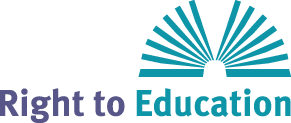L'éducation est un droit humain fondamental pour chaque femme, homme et enfant. Ces dernières décennies, de nombreux États désireux de faire du droit à l’éducation une réalité ont fait d’impressionnants progrès. Avec l’entrée en vigueur de nouvelles lois et politiques supprimant les frais liés à l’éducation de base, l’enseignement gratuit gagne du terrain. Des dizaines de millions d’enfants ont donc fait leur entrée à l’école et le nombre d’enfants et adolescents déscolarisés a été presque divisé par deux depuis 2000. Des mesures importantes ont également été prises en ce qui concerne la parité des genres et les États se sont appliqués à améliorer la qualité de l’éducation en optimisant les politiques relatives aux enseignants et en mettant l’accent sur les résultats d’apprentissage.
Malgré tous ces efforts, le droit à l’éducation est encore régulièrement enfreint. Preuve marquante s’il en est, 262 millions d’enfants en âge de fréquenter l’école primaire et secondaire ne sont pas scolarisés. Les filles, les personnes handicapées, les personnes défavorisées ou venant des zones rurales, les autochtones, les migrants et les membres des minorités nationales sont les plus touchés par des discriminations qui nuisent aussi bien à leur accès à l’éducation qu’à leurs droits dans les écoles.
Pour répondre au défi, l’UNESCO et l’Initiative pour le droit à l’éducation (Right to Education Initiative, RTE) ont mis au point ce manuel orientant les actions permettant de garantir le droit à l’éducation. Son objectif n'est pas de présenter le droit à l'éducation comme une notion abstraite, conceptuelle ou purement juridique, mais plutôt de conduire à l'action. Ce manuel sera utile à ceux qui agissent pour la réalisation de l’ODD 4, car il fournit des conseils stratégiques sur la manière de mettre à profit les engagements juridiques en faveur du droit à l’éducation pour atteindre cet objectif.
Treaty bodies are committees of independent experts created under a particular UN treaty. They are mandated to monitor how the states which have ratified the treaty in question comply with their obligations to implement the human rights guaranteed by the treaty, including the right to education. They periodically examine state reports and issue concluding observations on states’ compliance with the treaty, including recommendations.
The UN Committee on Economic, Social and Cultural Rights (CESCR), the UN Committee on the Rights of the Child (CRC), the UN Committee on the Elimination of all forms of Discrimination Against Women (CEDAW), the UN Committee on the Rights of Persons with Disabilities (CRPD) and the UN Committee on Civil and Political Rights (CCPR) have covered issues related to higher education in their concluding observations. This document compiles their concerns and recommendations for the period 2016-2021. It is organised by UN treaty Bodies with states listed in alphabetical order.
RTE's background paper for the Global Education Monitoring Report 2017/8: Accountability in education: Meeting our commitments.
The purpose of the paper is to show how a human rights-based approach offers insights and practical solutions to address the accountability deficits found in both education policy decision-making and implementation, and the 2030 Agenda for Sustainable Development.
Specifically, the paper argues that a human rights-based approach to accountability can bolster public policy accountability by defining the responsibilities of authorities, ensuring they are answerable for actions regarding those responsibilities, and how they can be subject to forms of enforceable sanctions or remedial action for failures to carry out those responsibilities.
The second half of the paper explores the prevalence of the right to education in national laws and the conditions necessary for the right to education to be successfully adjudicated at the national level. It provides an overview of how countries have incorporated the right to education in their domestic legal orders, as well as a list of countries where the right to education is justiciable. This is complemented by a series of case studies that draw out the requirements for successful adjudication at the national level.
This paper examines court cases from countries around the world to identify the conditions that enable the right to education to be realised through adjudication.
This documented was submitted to the UN Special Rapporteur on the right to education in February 2023, in response to a call for contributions for a report she is developing for the UN Human Rights Council.
Ce document de recherche et d’orientation étudie certains aspects du droit à l'éducation qui pourraient nécessiter un ancrage plus solide dans le cadre normatif international et une expansion potentielle pour le 21st siècle. L'éducation numérique, la mobilité croissante des personnes, l'évolution démographique, le changement climatique et les attentes en matière de possibilités d'apprentissage tout au long de la vie ne sont que quelques-uns des domaines qui mettent à l'épreuve les limites du cadre normatif international existant. Aboutissement d'un cycle de consultations ouvertes, de séminaires et d'événements internationaux, ainsi que de recherches, ce document présente quelques-unes des tendances émergentes, des défis et des normes qui ont été discutés.
This policy-oriented research paper investigates some of the aspects of the right to education that might require a stronger footing in the international normative framework and potential expansion for the 21st century. Digital education, increasing human mobility, changing demographics, climate change, and expectations of opportunities for learning throughout life are just a few of the areas that are testing the limits of the existing international normative framework. The culmination of a round of open consultation processes, as well as international seminars and events, and research, this paper presents some of the emerging trends, challenges, and norms that have been discussed.
